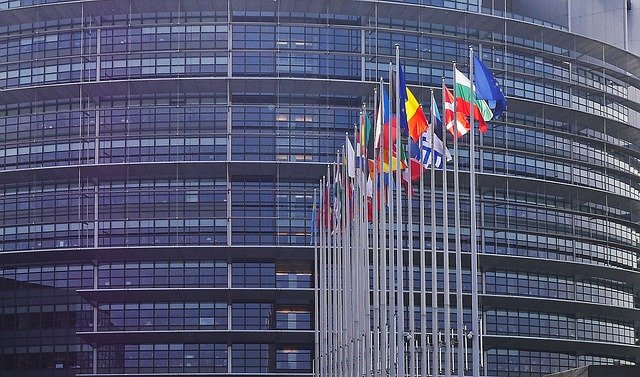-by INSME Secretariat
On the 14th of July, Prof. Evgeni Evgeniev, Research Attaché and Permanent Representation of Bulgaria to the European Union held an insightful speech over the EU policies for SMEs that marked the end of the first edition of The Innovation Management Programme.
Prof. Evgeniev opened his presentation by mentioning two important facts the EU had to face in 2020, the Covid-19 spread and the Brexit.
By considering the impact of the first one, the Commission in order to propel Europe’s recovery and resilience, proposed a major recovery plan that brough the financial capacity of the EU budget to €1.85 trillion.
While the second one, the Brexit, caused the withdrew of the United Kingdom, the second-best performer, after Germany, in the exploitation of the resources made available by Horizon 2014- 2020.
That said, the speaker explored the European Policies to boost research and innovation. At the end of 2019, the Commission identified digital transformation and green transition as the main pillars to improve the global competitiveness of the EU economy and the wellbeing of the society.
The European Commission, in order to benchmark the research and innovation performances of the EU Member States and selected third countries, releases every year the European Innovation Scoreboard whose results support the policymakers in building strategies to enhance the research level in each country based on their strengths and weaknesses.
The Scoreboard categorizes the innovation performance in 4 layers: Innovation Leaders, Strong Innovators, Moderate Innovators and Modest Innovators.
2019’s Scoreboard highlighted a relevant gap among Eastern and Western European countries that, according to the speaker, the European Commission should decrease. Other important challenges for the European Commission are the creation of incentive schemes to attract and support private investment in R&D and also the increasing of the amount of R&D financed by the EU, since 90% of it is financed by national programmes.
Horizon Europe 2021 – 2027, is the biggest EU Research and Innovation programme aimed at securing Europe’s global competitiveness. The Programme, born from the collaboration between the European Commission and the member states, will be implemented from January 2021 and rests on 3 pillars:
1. Excellence Science;
2. Global Challenges and European Industrial Competitiveness;
3. Innovative Europe.
The first pillar’s objective is to reinforce and extend the excellence of EU in the field of research and innovation, the Commission proposed € 25.8 billion budget for it.
The second pillar is aimed at boosting key technologies and fostering the achievement of Sustainable Development Goals with a proposed budget of € 52.7 billion. It is addressed also to third countries with good capacity in science, technology and innovation and consists of 6 clusters.
The third pillar is the groundbreaking element of Horizon Europe 2021 – 2027. This pillar is aimed at spurring market-creating discoveries and ecosystem conducive to innovation with a budget of € 13.5 billion. In the speaker’s visionary perspective, this pillar should become more open to the most recent European innovation technology countries.
The last element of the Programme, introduced by Prof. Evgeniev, has been the Widening Participation and Strengthening the European Research Area, an opportunity to optimise strengths and potential for a more innovative Europe and to pitch East of Europe. The budget for this part of the Programme is 3.3% of the overall budget, so three times the budget for Widening of Horizon Europe 2014 – 2020.
The speaker mentioned also the European Innovation Council, which is the umbrella for Venture Capital investment in Europe to support top-class innovators, start-ups, small companies and researches with highly innovative and quite risky ideas, products and business models. The pilot phase of this instrument gave good results and the total budget available for it is € 10 billion.
At the end of his speech, the speaker pointed out that because of the Covid-19 crisis, research and innovation became more and more important in the eyes of the policymakers and Horizon Europe 2021-2027 due to its innovative elements will generate a higher impact than the previous programme on Europe and European citizens.



